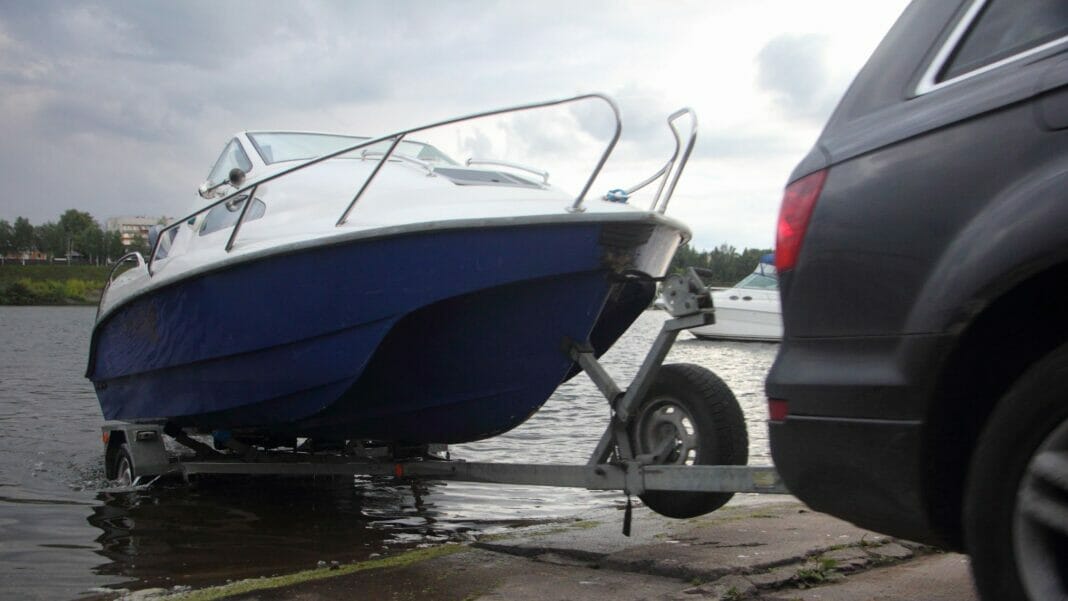Safe and legal towing of a boat is essential for any boat owner. Adhering to the various laws in place ensures that boat owners are significantly reducing the risks that may be associated with hauling boats on the road. Before embarking on a journey towing a boat, it is crucial to first understand the legal requirements that apply in your state or region. This article covers some of the general legal guidelines, key terminologies, and some best practices related to towing a boat trailer that will help make the experience obstacle-free.
Boat Trailer Terminology
Before delving into the laws and regulations, it is important to understand some of the key terminologies used, as these terms will be consistently used throughout the article:
- Towing Vehicle: The vehicle used to tow the trailer and boat.
- Trailer: The wheeled platform attached to the towing vehicle, on which the boat is loaded.
- Gross Trailer Weight (GTW): The combined weight of the loaded trailer and the boat.
- Gross Vehicle Weight (GVW): The combined weight of the loaded boat, trailer, and the towing vehicle.
- Trailer hitch: The connection between the towing vehicle and the trailer.
- Trailer brakes: Brakes specifically installed on the trailer to assist in stopping the towing vehicle and trailer.
General Legal Guidelines
Though specific boat trailer laws may vary from state to state in the U.S., there are some general legal guidelines that are consistent throughout most jurisdictions. These cover aspects such as trailer size, lighting, and braking requirements.
Trailer Size and Weight Limits
The size and weight of the boat trailer is subject to regulation by each state’s Department of Transportation (DOT). Before towing a boat, ensure that the trailer is within the legal limits set by your state’s DOT. Common regulations include:
- Maximum width of a trailer, typically 8.5 feet
- Maximum height of a trailer, usually 13.5 feet
- Maximum total length of the towing vehicle and trailer, typically between 65 and 70 feet
Trailer Lighting Requirements
Various laws require boat trailers to have specific lighting devices installed to ensure the safety of not only those towing the boat but also other road users. These include:
- Tail Lights: Red lights situated at the rear of the trailer to indicate the trailer’s size and shape
- Brake Lights: Red lights that activate when the towing vehicle’s brakes are applied
- Turn Signals: Amber or red lights at the rear of the trailer, indicating a change in direction
- Clearance Lights: Amber lights placed on the side of the trailer to indicate its width
- Reflectors: Red and amber reflectors to improve the trailer’s visibility to other drivers
Trailer Braking Requirements
Depending on the weight of your boat and trailer (GTW), you may be required to have trailer brakes installed. These requirements vary from state to state, with the most common regulation stating that trailer brakes are required if the GTW exceeds 3,000 lbs.
Best Practices for Safe and Legal Towing
While abiding by the laws is necessary, following best practices can help make towing safer and easier. Here are some essential recommendations:
1. Inspect Your Trailer and Towing Vehicle: Before hitting the road, inspect both your towing vehicle and trailer for any signs of wear or damage. Ensure that your boat is appropriately secured on the trailer and that the weight is distributed evenly.
2. Practice Driving with Your Trailer: Towing a boat trailer can be challenging, especially for beginners. Practice driving in areas with low traffic to familiarize yourself with the vehicle’s handling, reversing, and turning.
3. Check Your Insurance: Most auto insurance policies do not automatically cover boat trailers, so it is crucial to check your policy or invest in separate trailer insurance.
4. Know Your State’s Laws: As mentioned earlier, laws regarding boat trailers can vary between states. To avoid any legal issues or fines, ensure you are aware of the specific regulations that apply to the areas you will be traversing while towing your boat.
Understanding and abiding by the boat trailer laws in your jurisdiction is a crucial aspect of safe and legal towing. Familiarize yourself with your state’s specific regulations, inspect your trailer regularly, and follow best practices to reduce any potential risks while on the road. With these precautions in place, your boat towing experience will be both legally compliant and safe.


